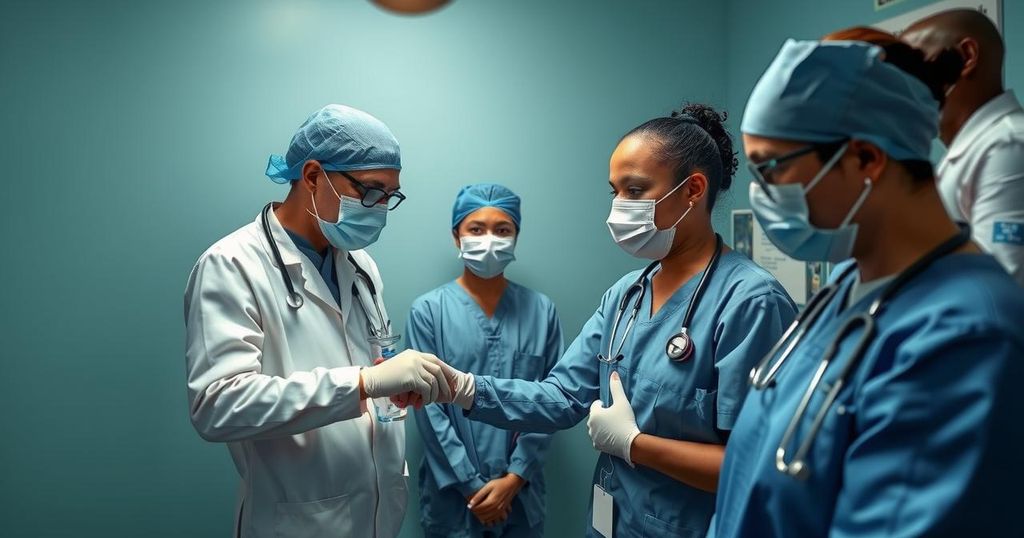The mpox outbreak in DR Congo has shown signs of improvement with a reported decline in new infections following the rollout of vaccines. The WHO confirmed a plateauing of cases, although ongoing transmission remains a public health concern, especially among children. Community response has improved, with patients seeking medical care earlier than before, and health officials continue to monitor the situation closely as they evaluate the necessity of maintaining emergency classifications.
Recently, the situation regarding the mpox outbreak in the eastern Democratic Republic of Congo has shown signs of improvement, according to medical professionals at the forefront of the crisis. A reduction in new infections has been noted since the initiation of a vaccination program, which began last month after the arrival of 265,000 vaccine doses donated by international partners. Despite the positive trend, the World Health Organization (WHO) has cautioned against premature conclusions, indicating that the outbreak remains a significant public health concern with an ongoing need for vigilance and support.
The WHO confirmed that the spread of mpox appears to have plateaued, yet emphasized that infections persist, with other African nations also reporting cases. Public health experts recognize that about 30% of the affected individuals are children, highlighting the need for targeted vaccination efforts in this demographic. By early this week, medical professionals indicated that the situation within the healthcare facilities had stabilized, noting fewer patients presenting with acute symptoms than previously seen. However, some healthcare workers remain cautious, stating that while the decline in new cases is promising, it does not guarantee long-term control of the outbreak.
Despite the challenges, the community’s response has improved, with individuals seeking out medical assistance more swiftly than before, thus alleviating some pressures on healthcare facilities. The implications of the vaccination rollout are beginning to materialize, but officials continue to closely monitor the situation as further evaluations will determine the global public health emergency classification.
In summary, while there are optimistic developments concerning the mpox outbreak management in the Democratic Republic of Congo, the disease’s ongoing presence necessitates continued public health measures and preparedness to prevent resurgence. Health officials remain on alert, ensuring that intervention strategies remain robust in the face of potential new cases.
Mpox, previously referred to as monkeypox, is a highly contagious viral disease that has led to significant morbidity and mortality, particularly in the Democratic Republic of Congo (DR Congo). The ongoing outbreak has notably affected children, who represent a substantial portion of the cases. The recent introduction of vaccination efforts aims to curb the transmission and protect vulnerable populations. Amidst media reports of stabilization in case numbers, health officials underline the necessity for continued vigilance as the vaccination rollout progresses and case monitoring continues.
In conclusion, the recent reduction in new mpox infections in the Democratic Republic of Congo, attributed to successful vaccination efforts, presents a hopeful outlook in the response to this public health crisis. Nevertheless, experts advise caution, recognizing that while the immediate situation appears improved, the risk of resurgence remains. Continuous efforts to vaccinate, monitor, and support affected communities are essential to fully control the outbreak and safeguard public health.
Original Source: www.bbc.com






